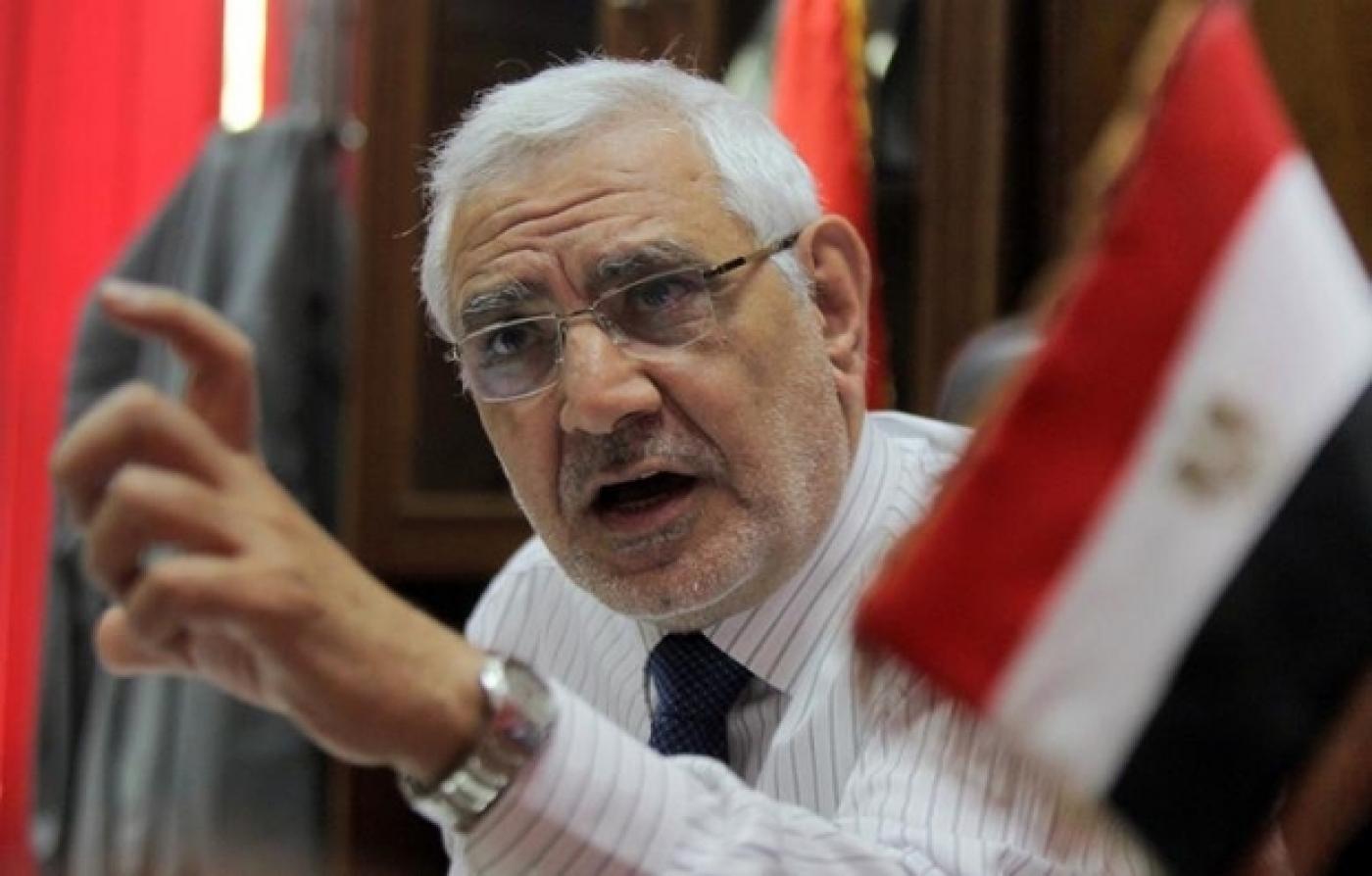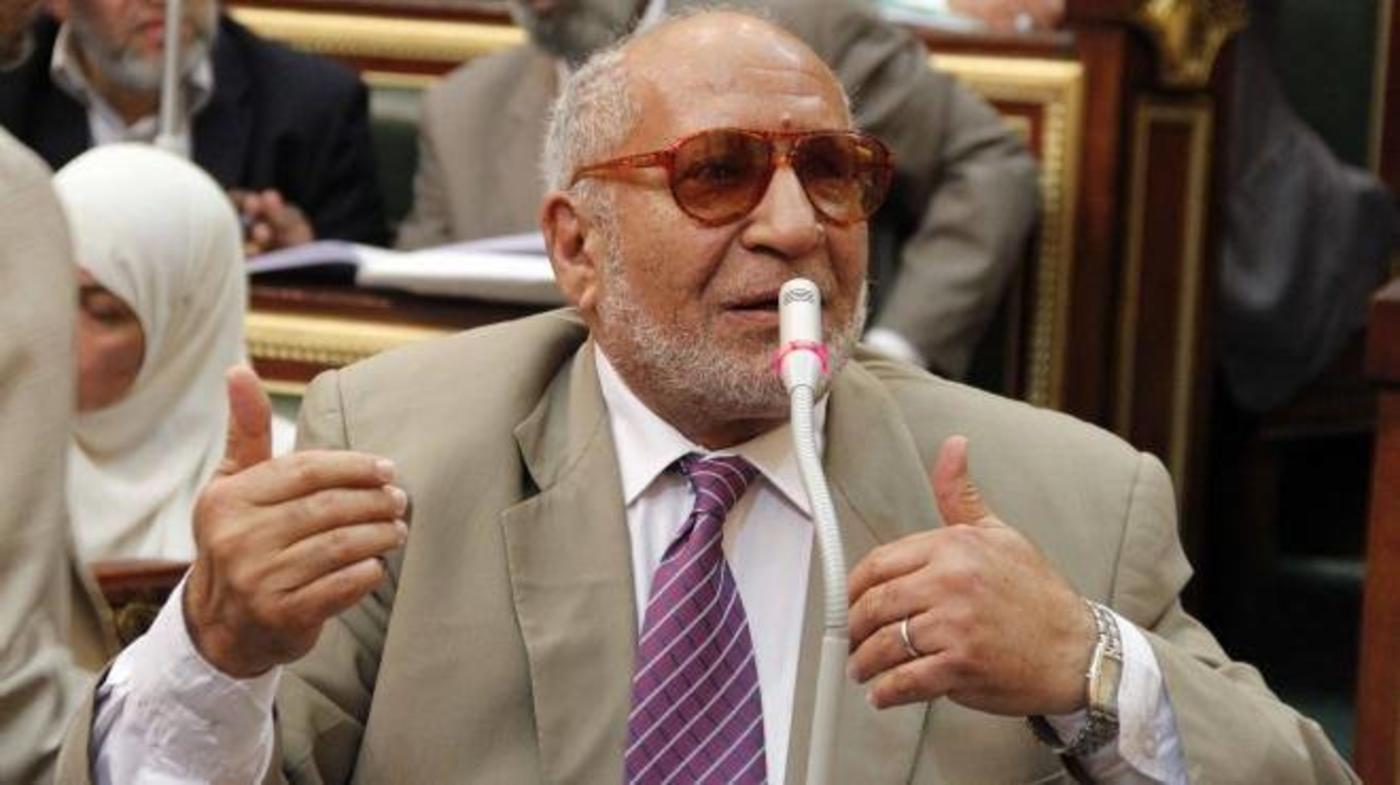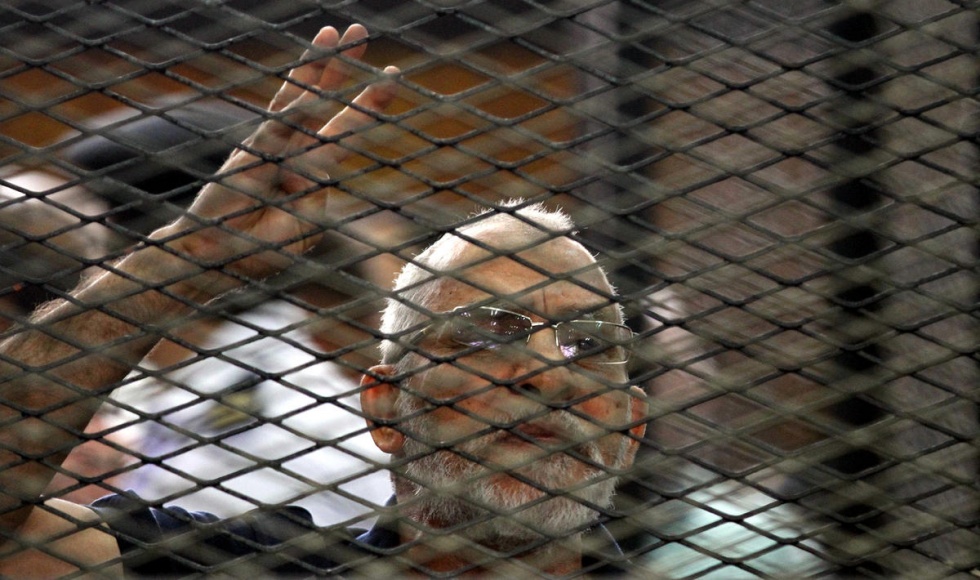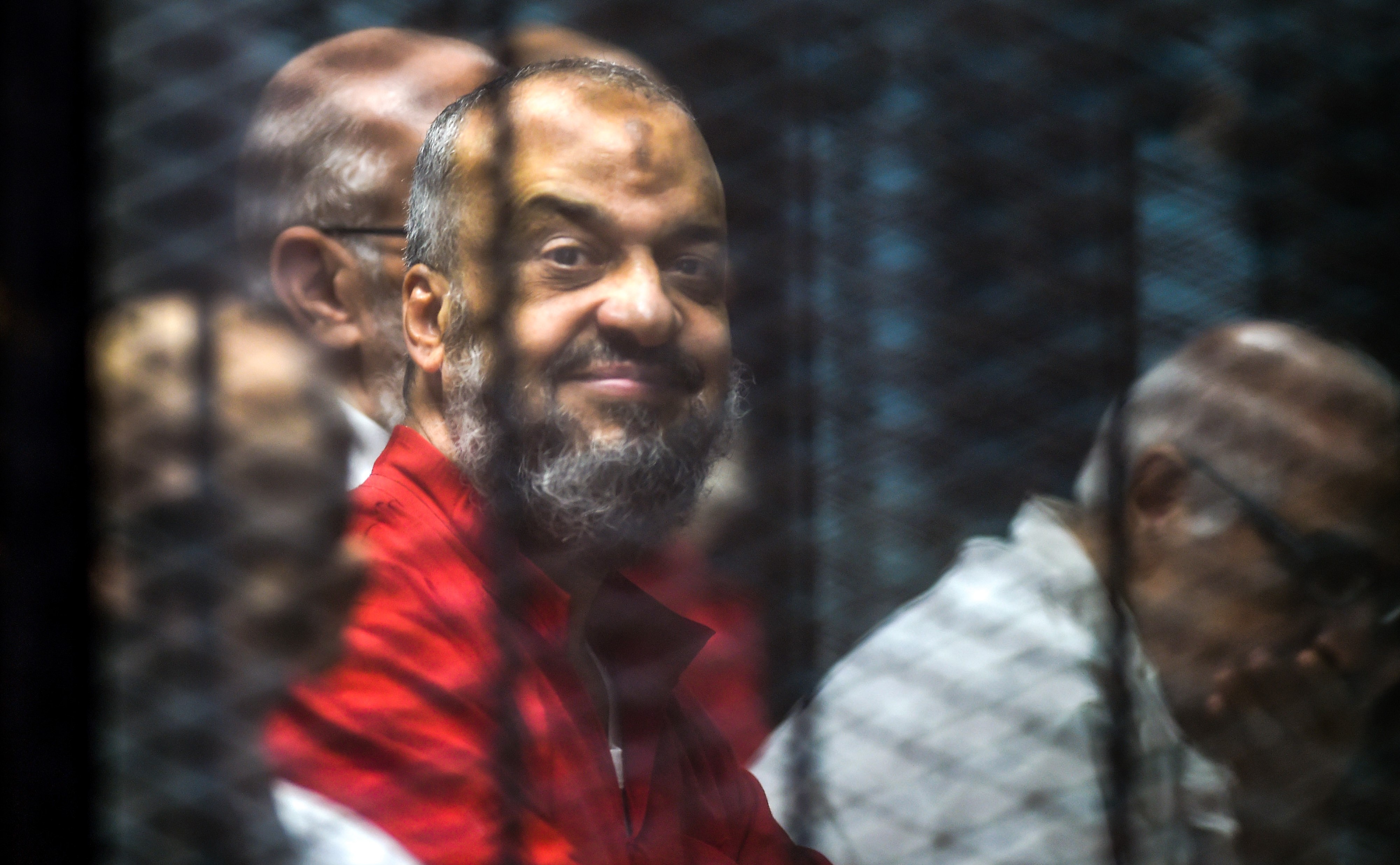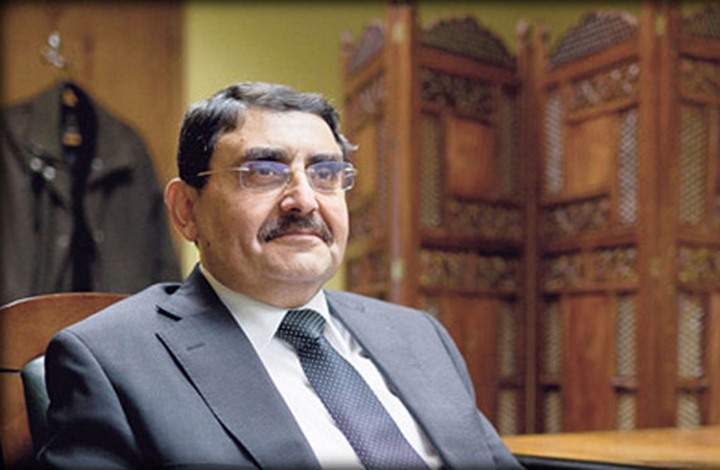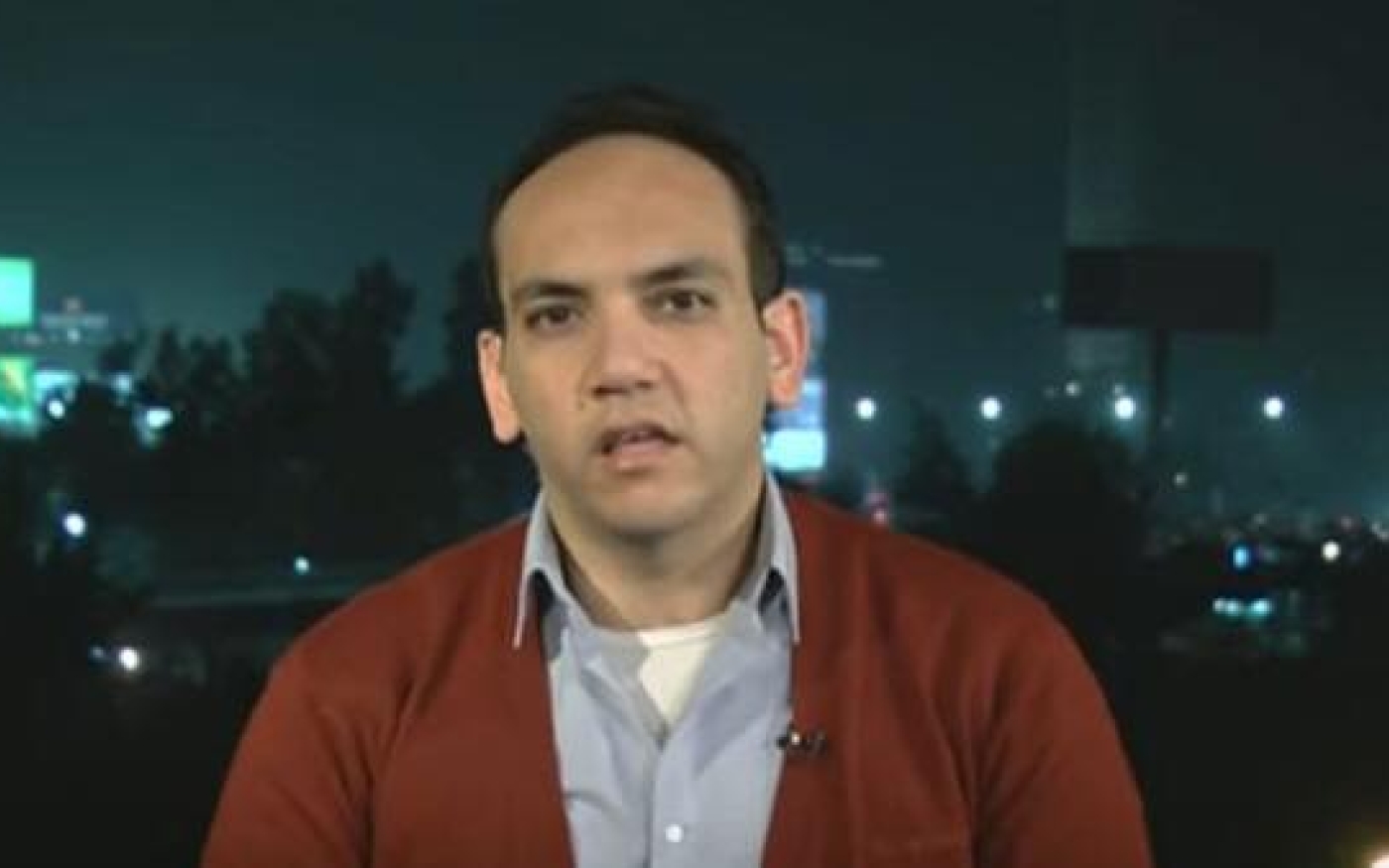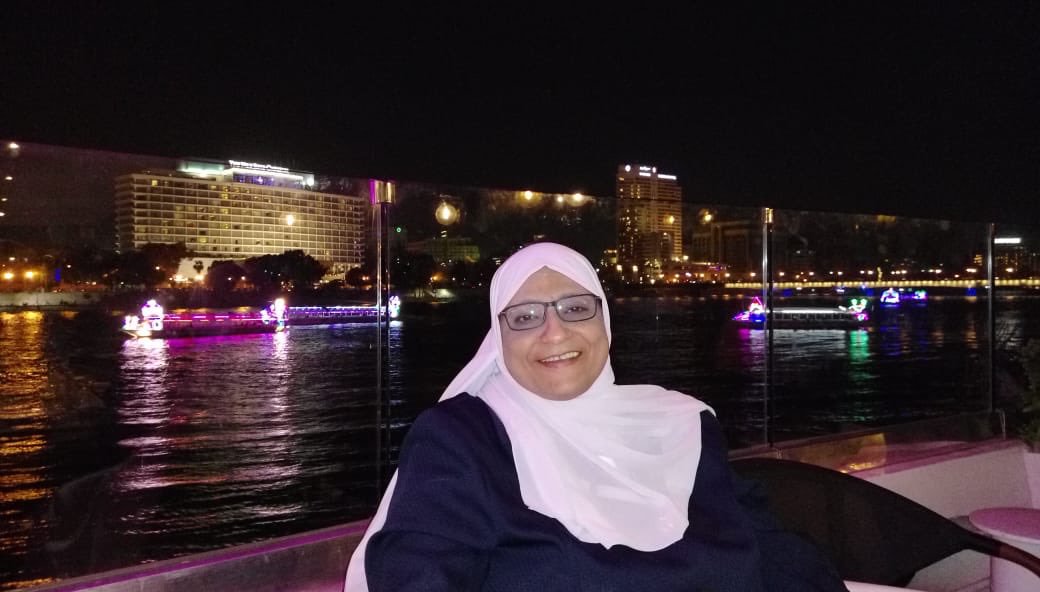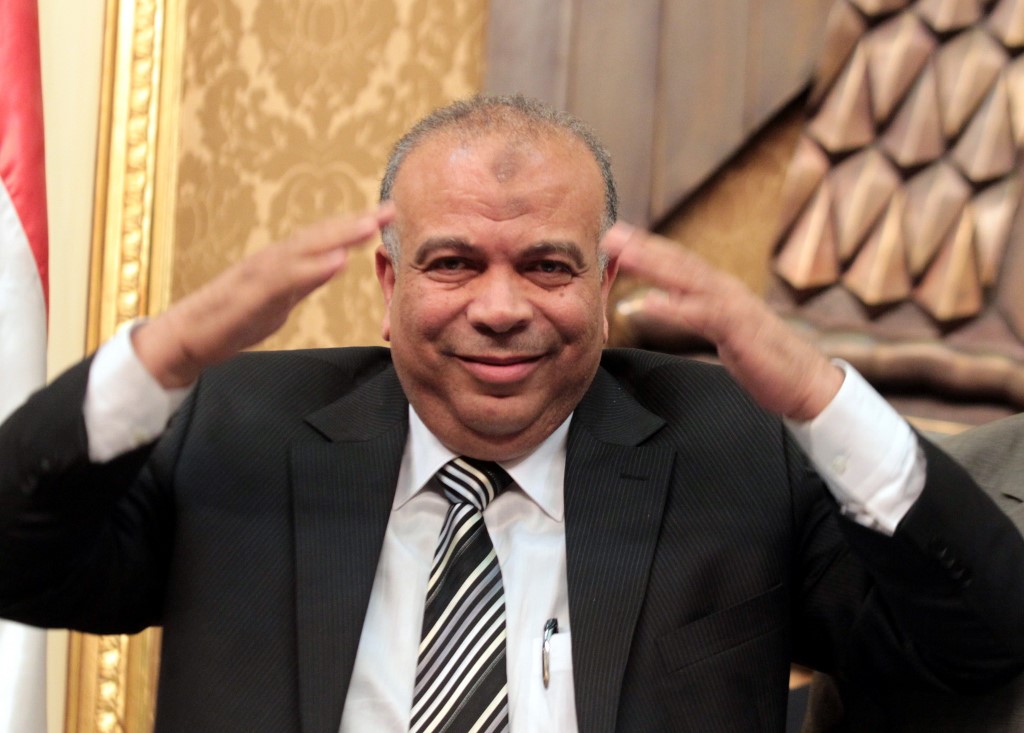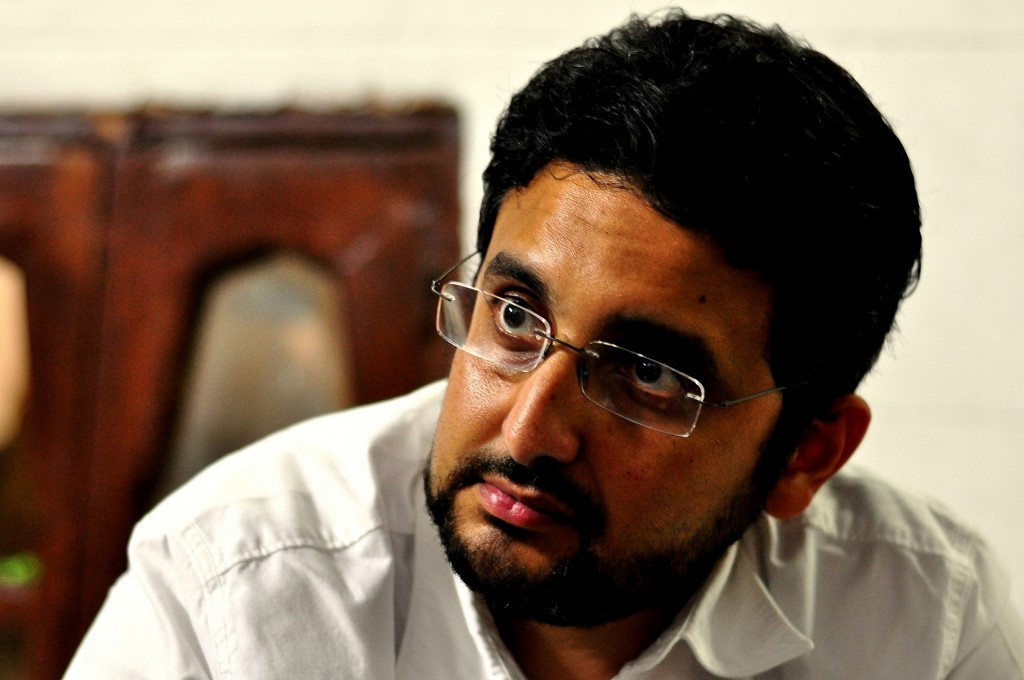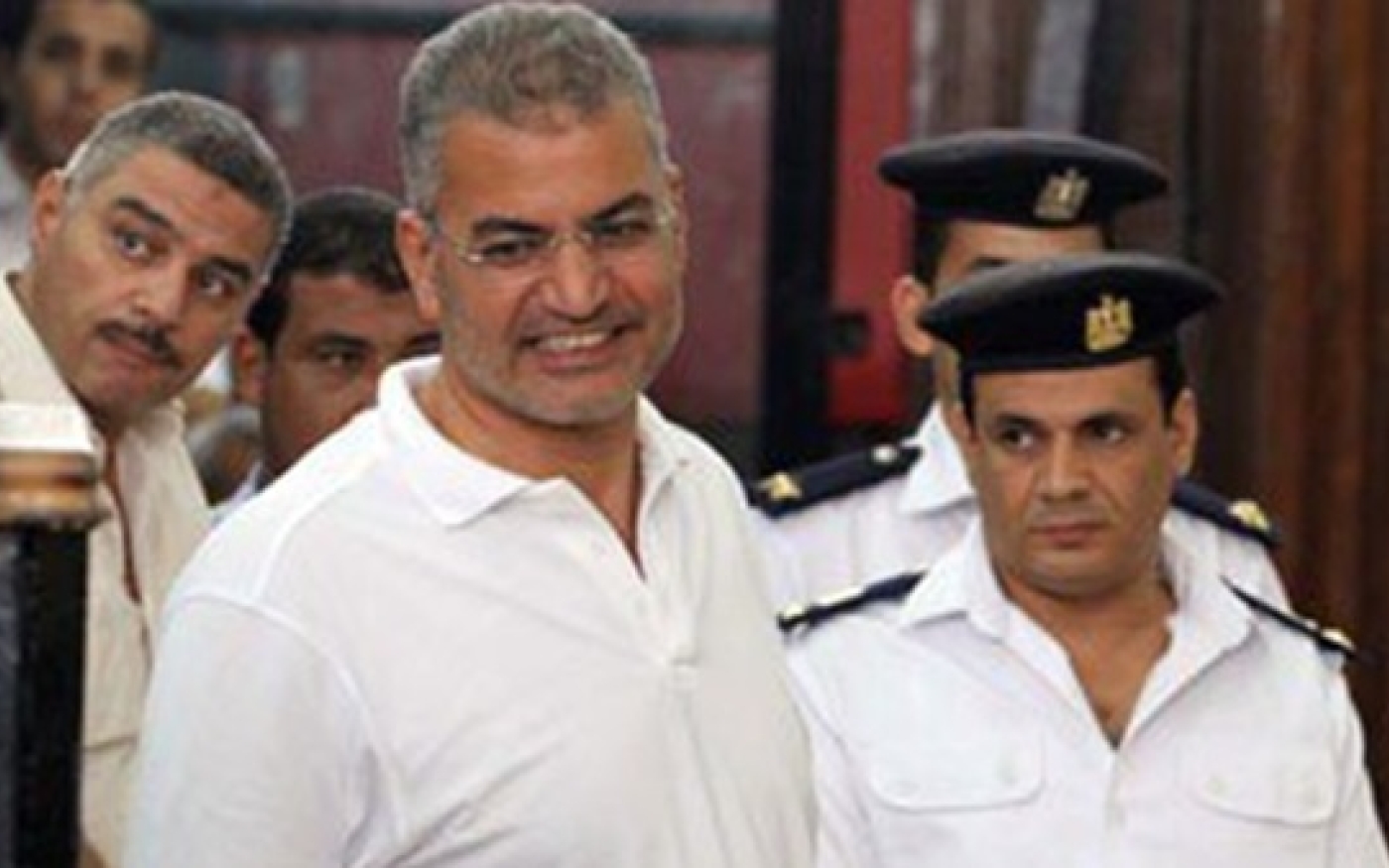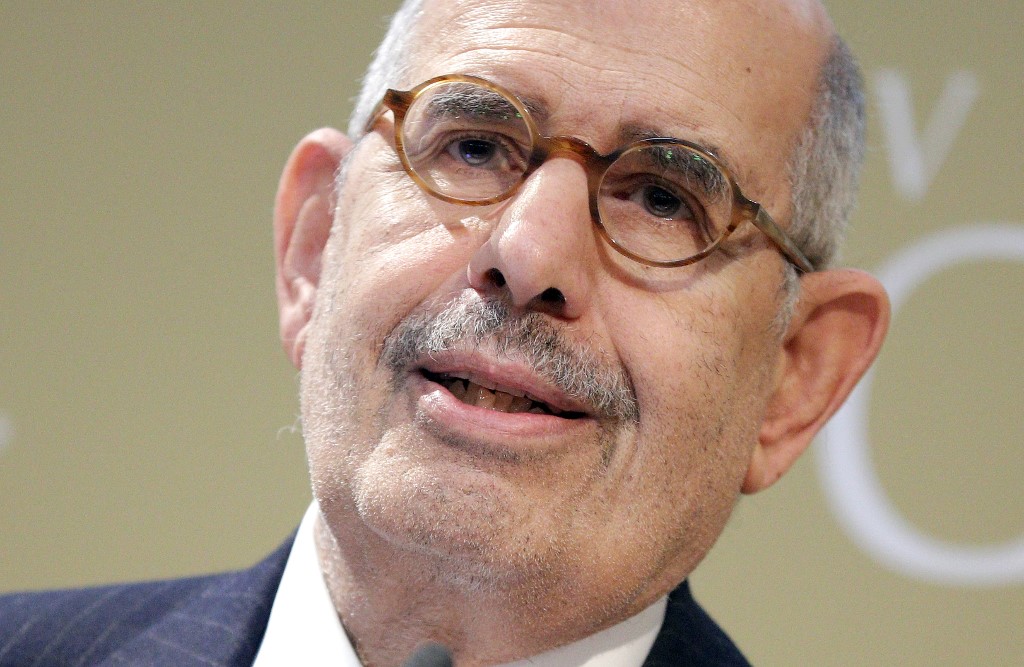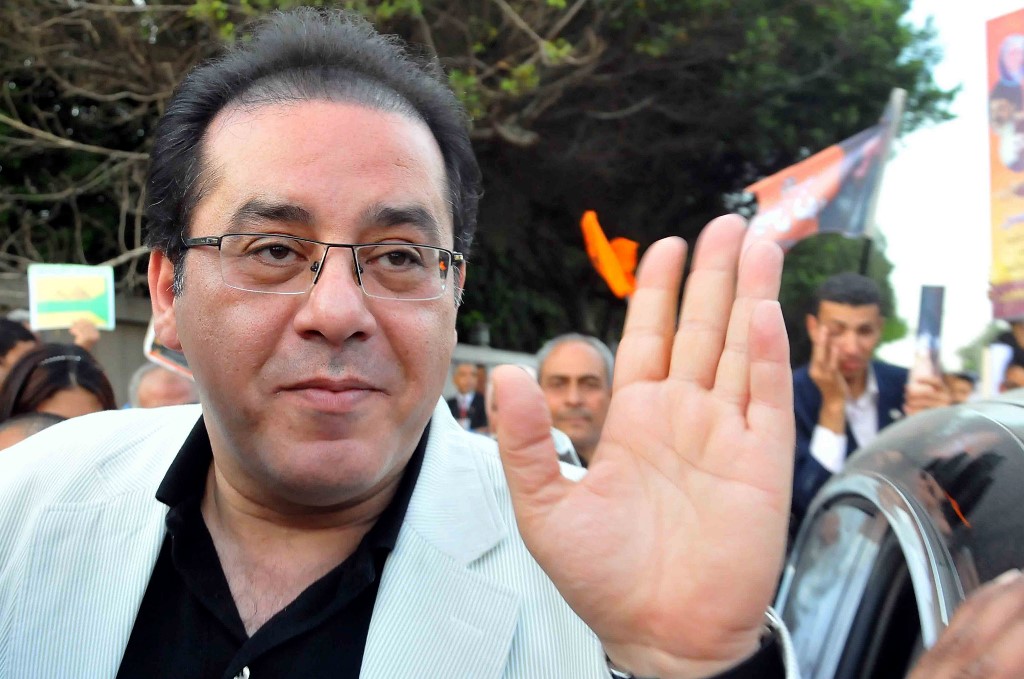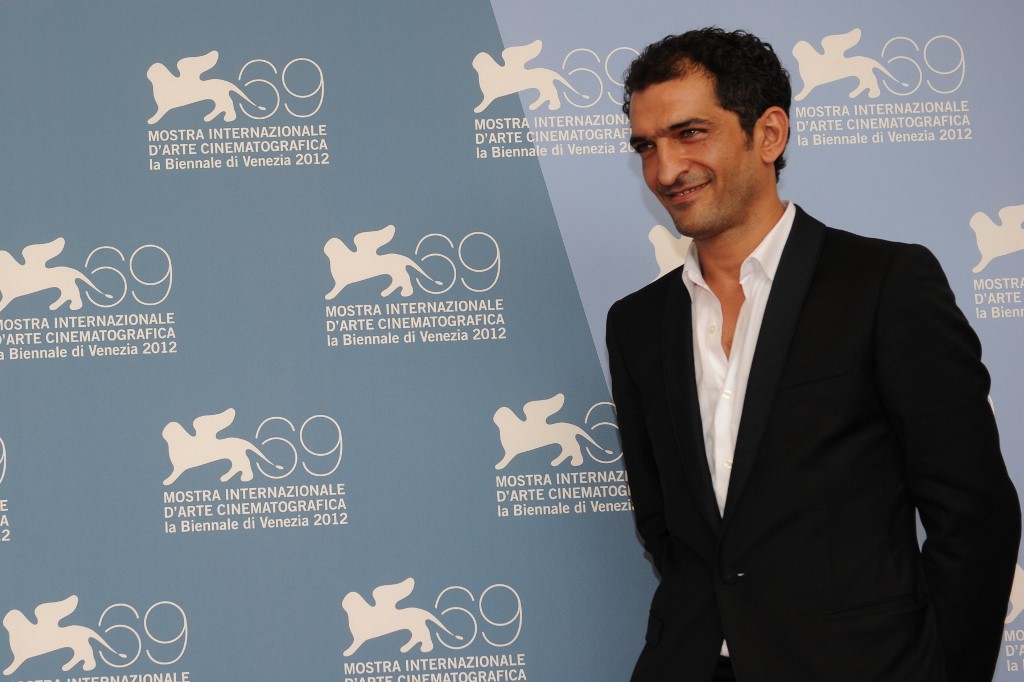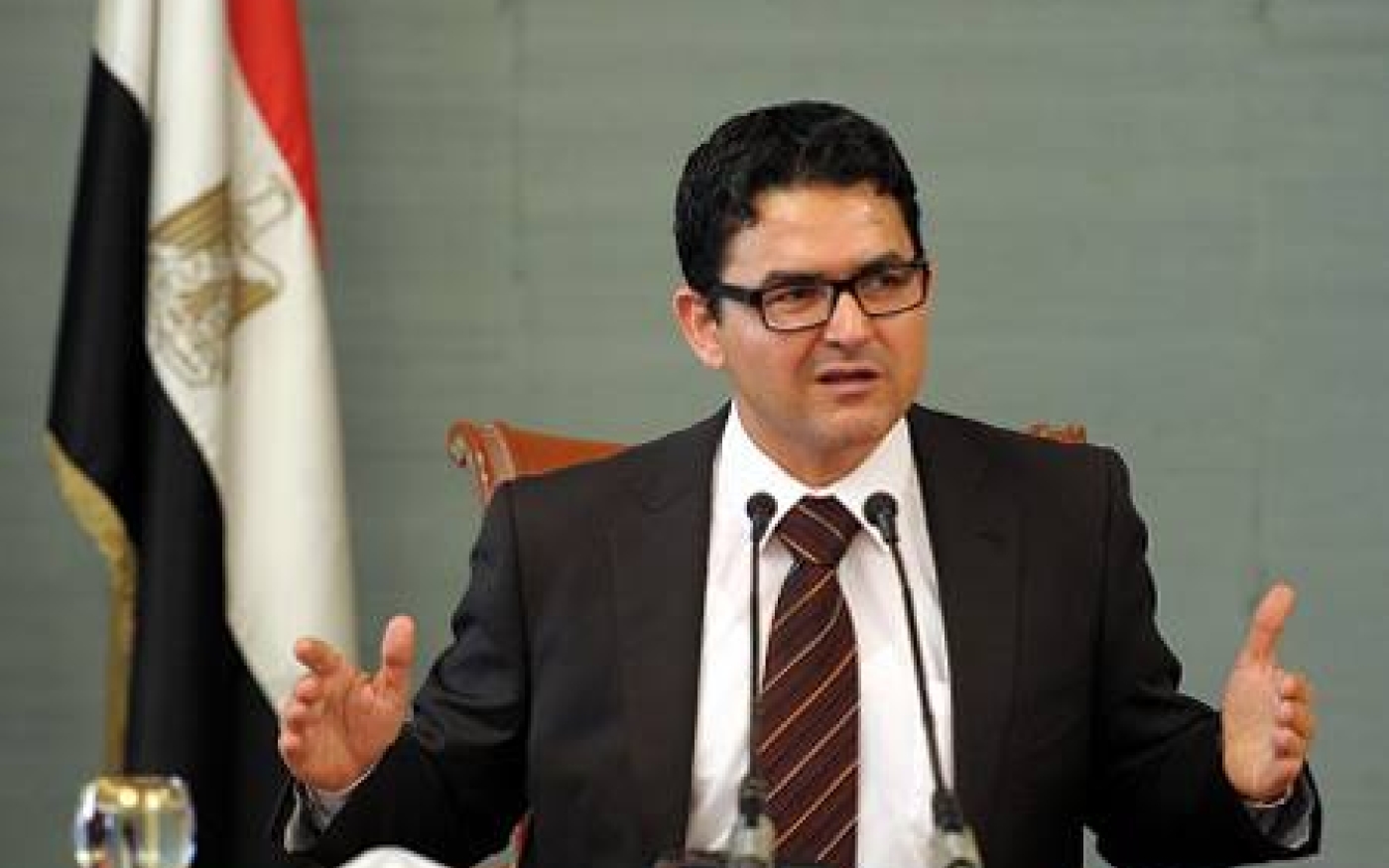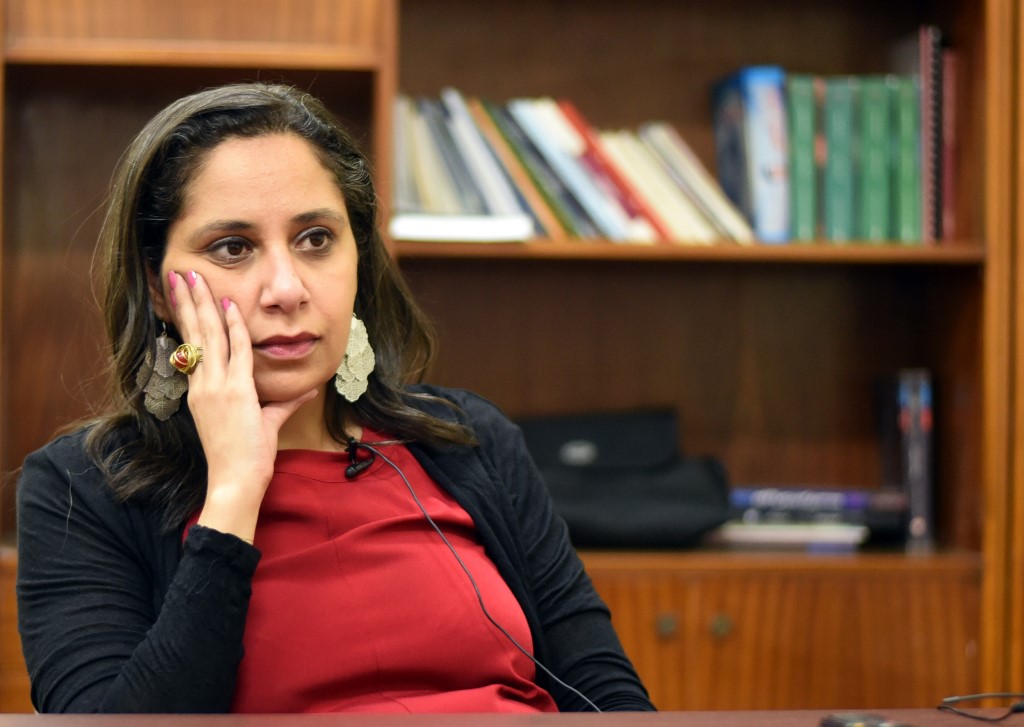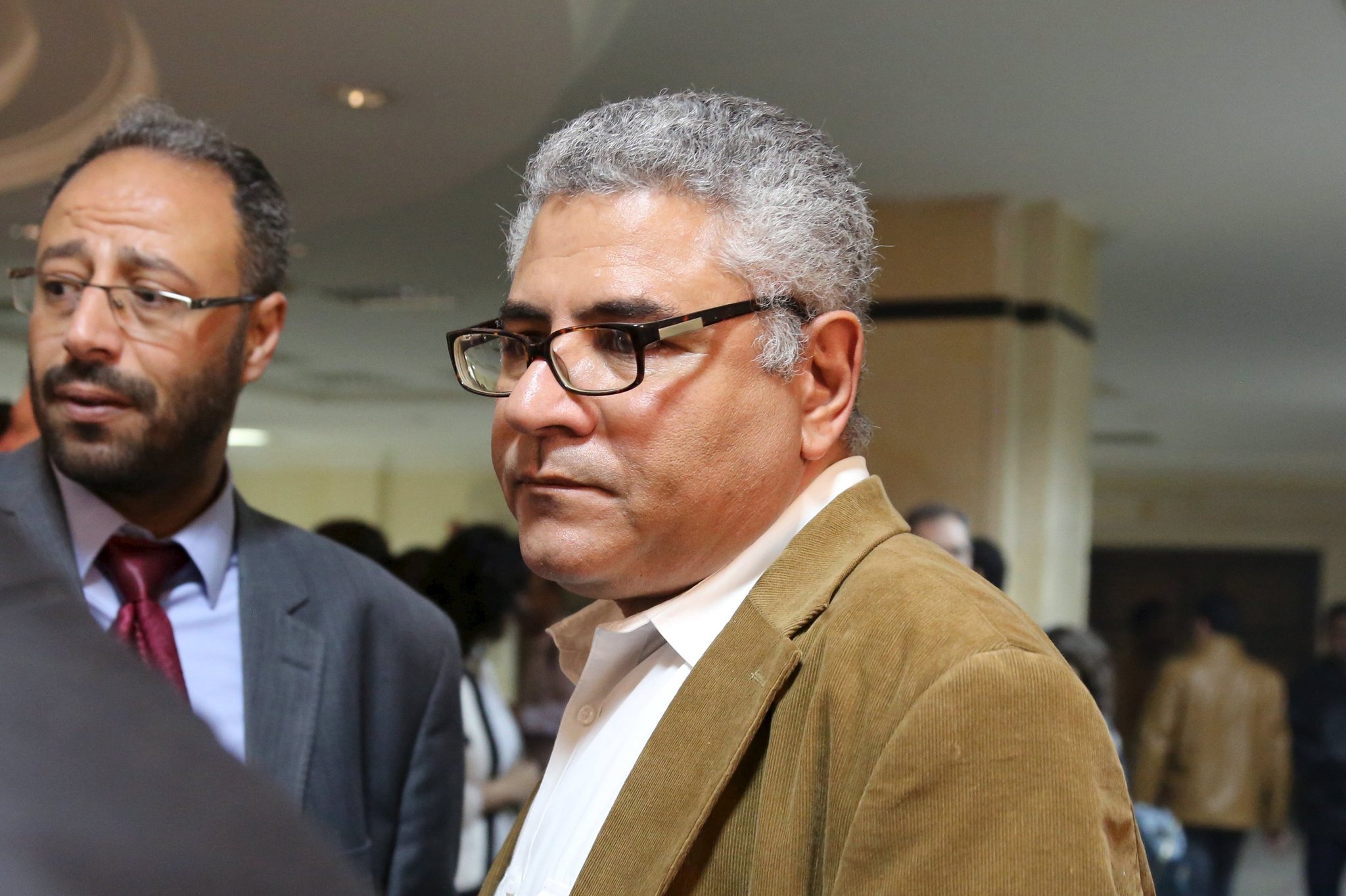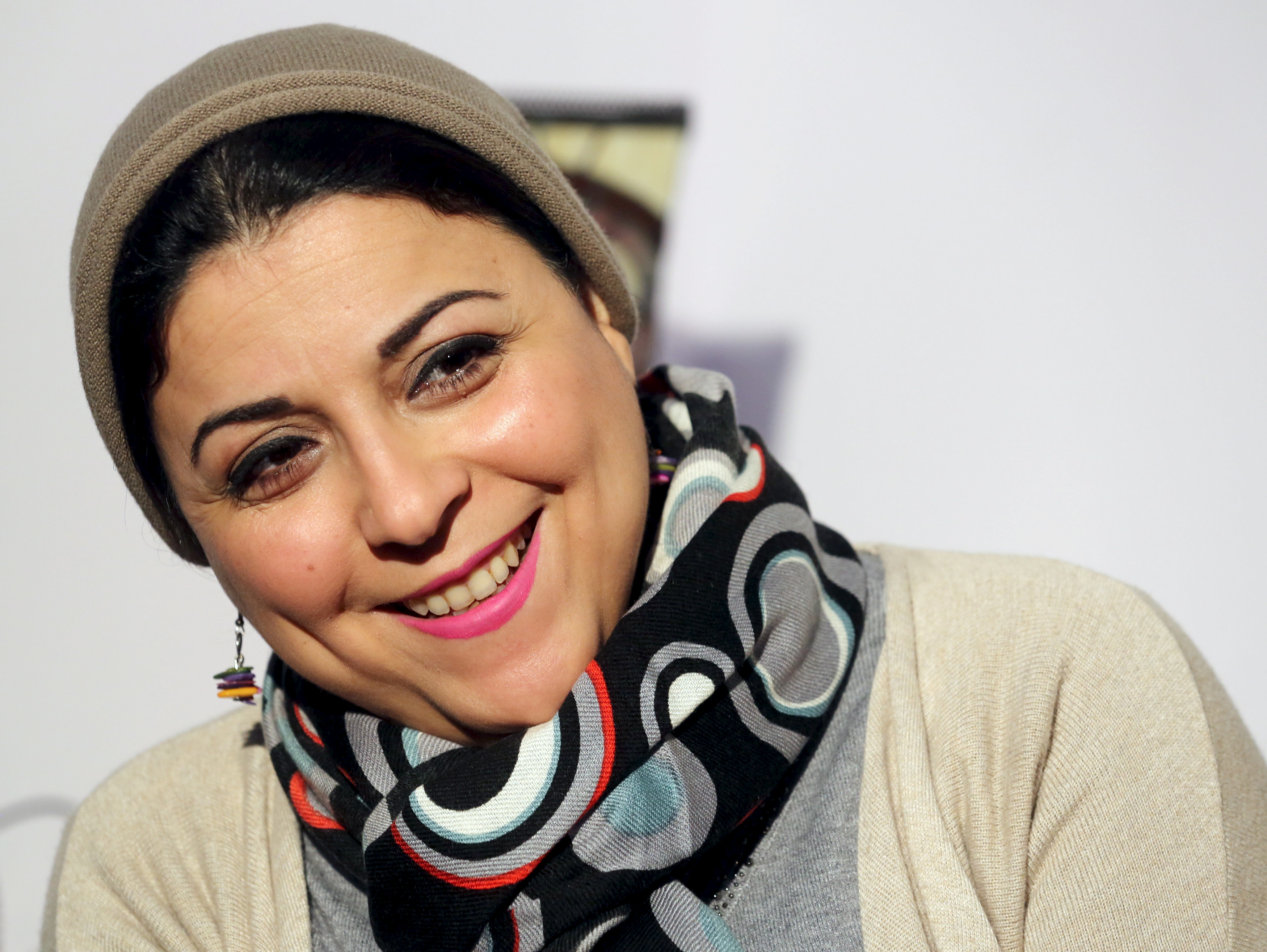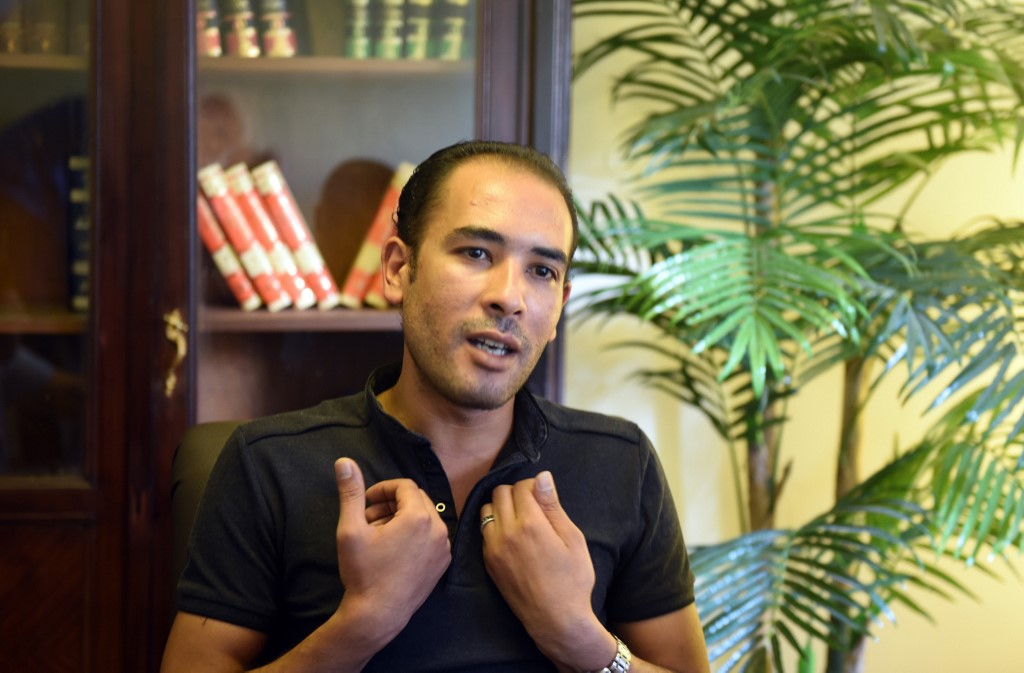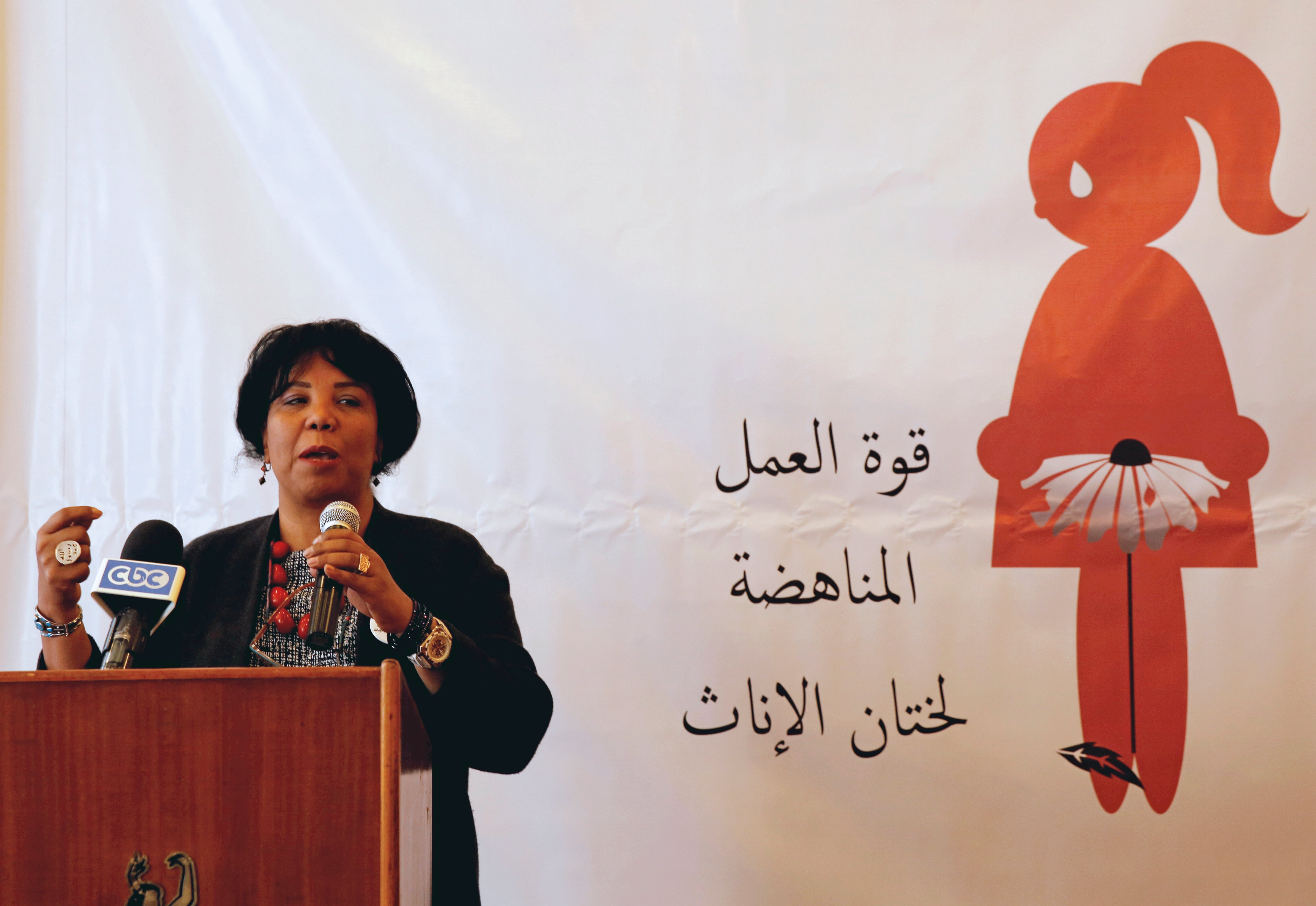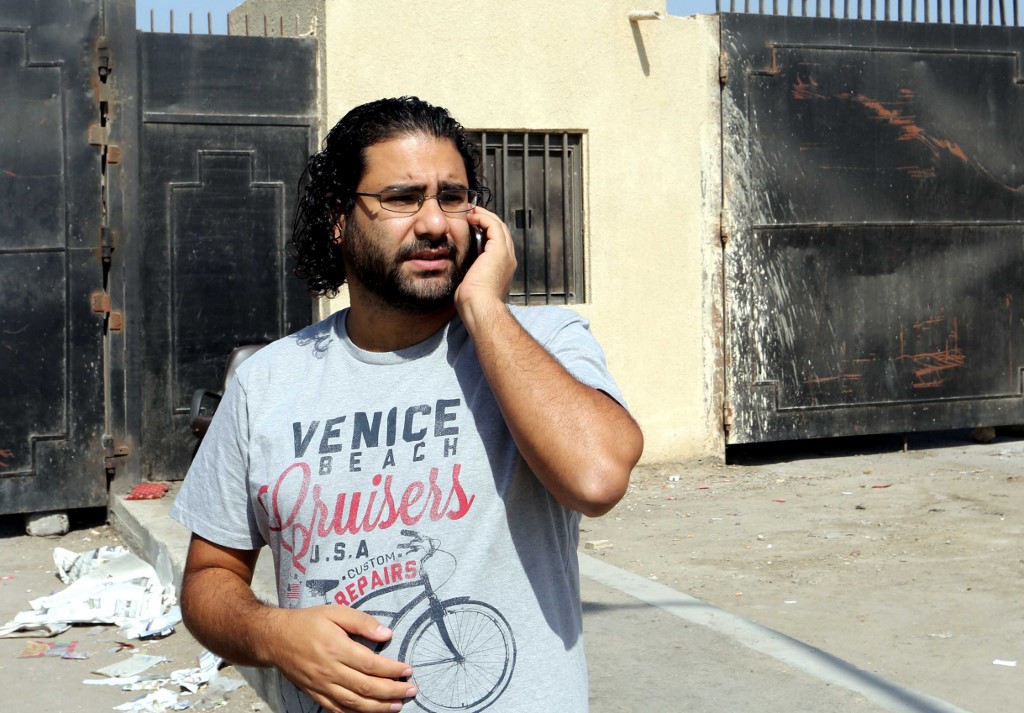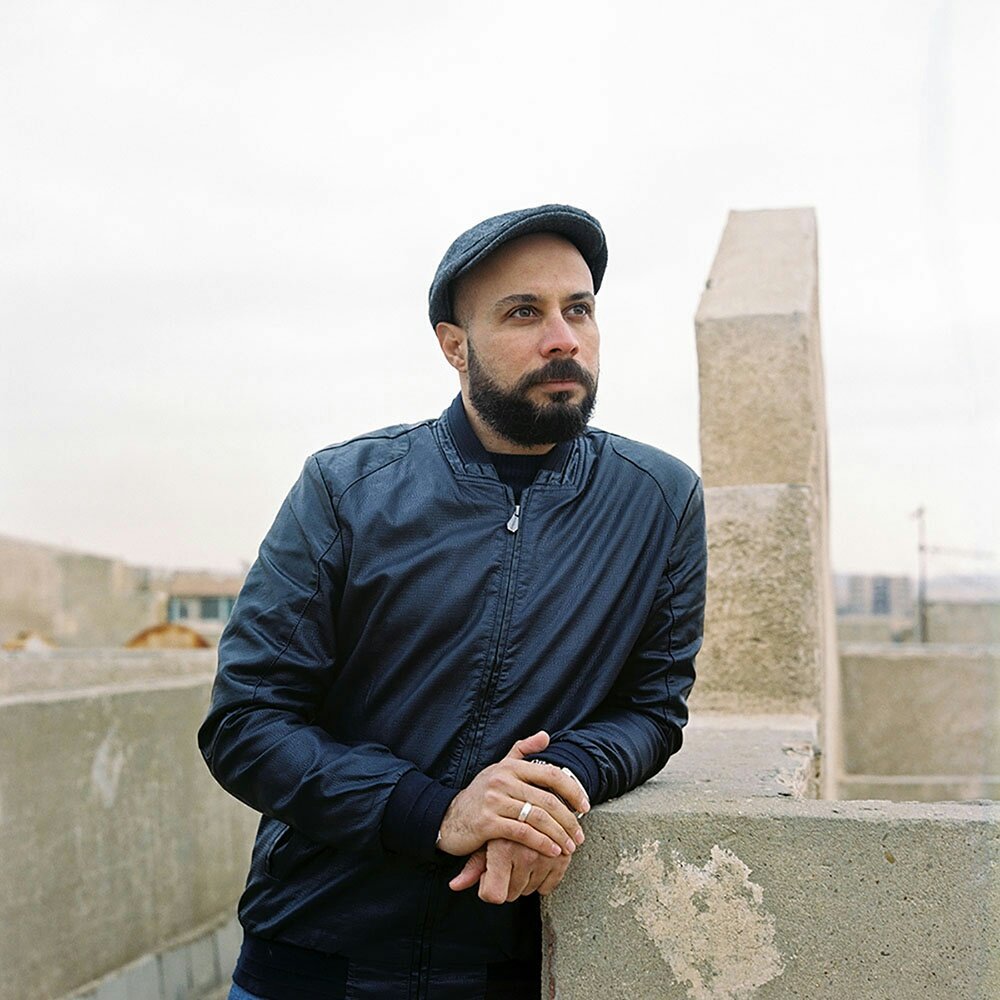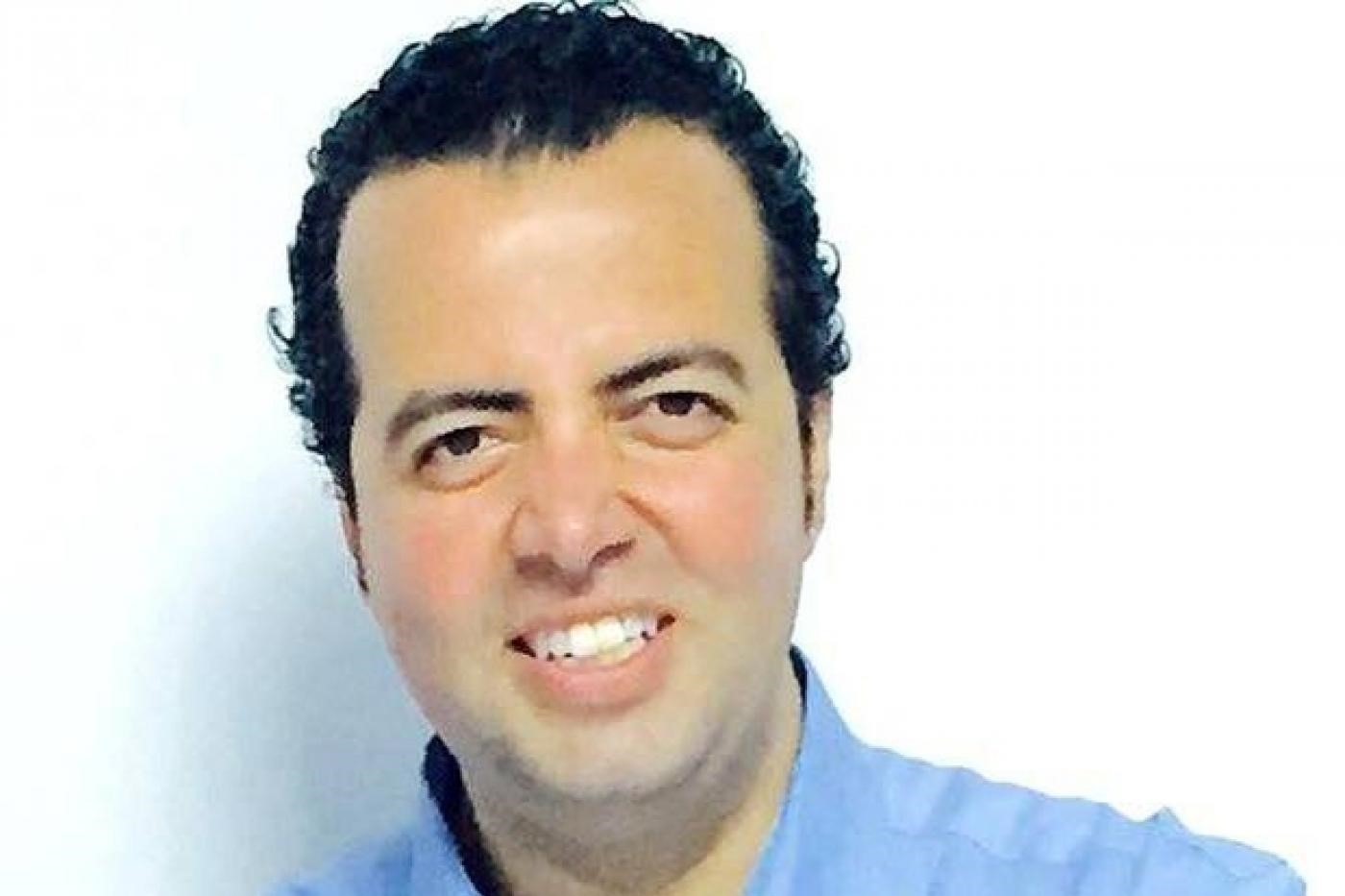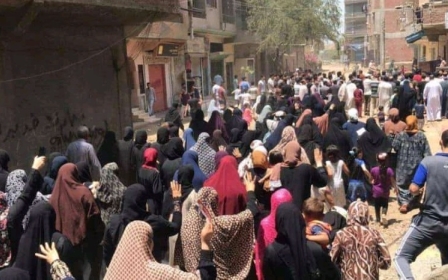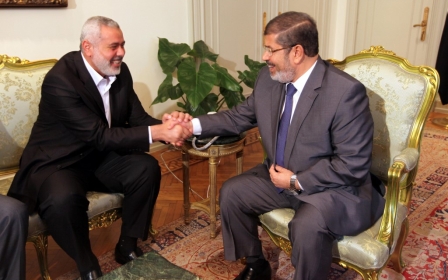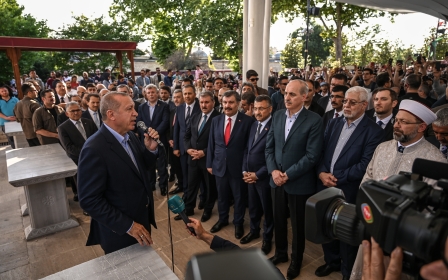Jailed, exiled, missing: The faces of Egypt's opposition to Sisi
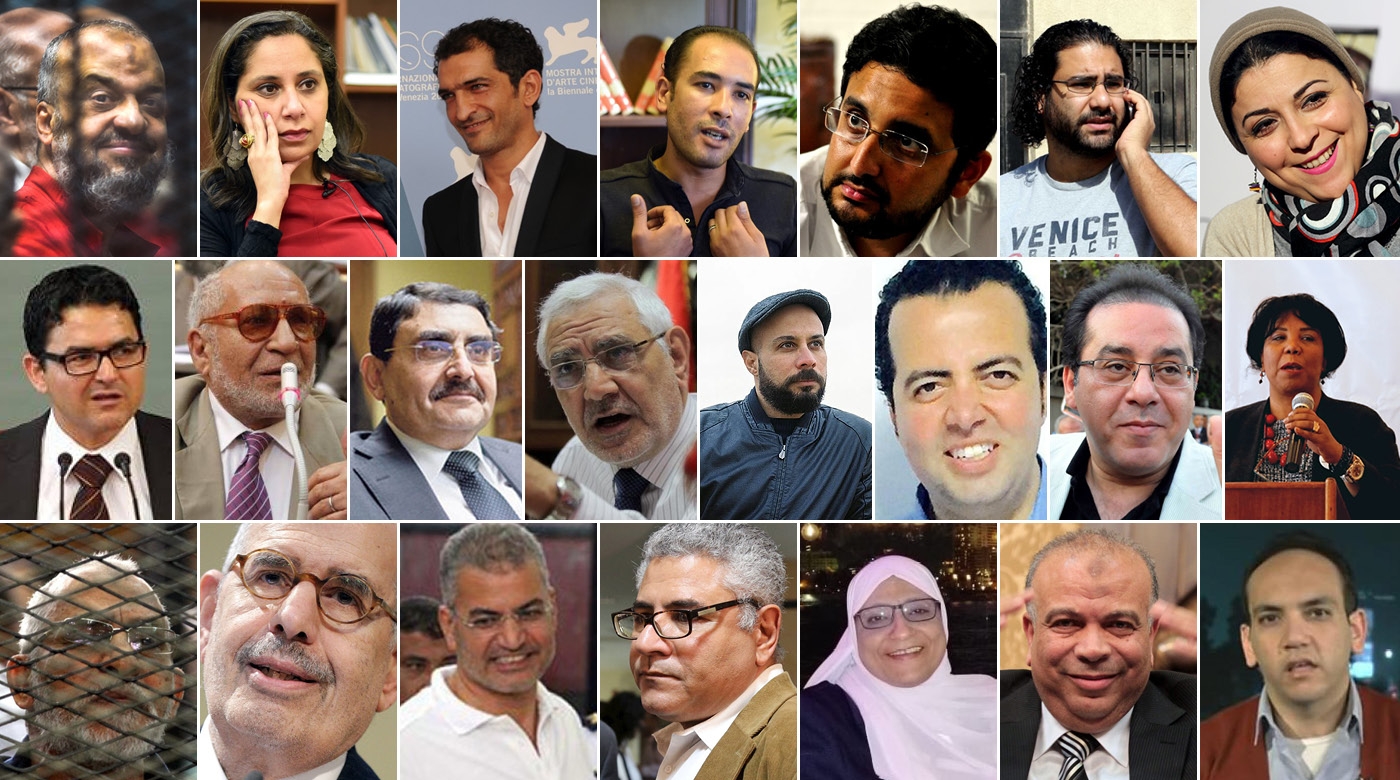
The death of Mohamed Morsi on Monday following his collapse in a courtroom has brought fresh attention to the ongoing crackdown on dissent launched by President Abdel Fattah el-Sisi’s government in the wake of the 2013 coup that brought him to power.
The death at 67 of Egypt’s first freely elected president came after family members and campaigners warned that his life was in danger because of a deterioration in his health caused by the conditions in which he was being held.
It prompted calls from human rights organisations for an international investigation into his death and the detention conditions of thousands of others being held as political prisoners.
Since Sisi’s re-election in March in a vote condemned as “unfree and unfair”, Human Rights Watch says that security forces have “escalated a campaign of intimidation, violence, and arrests against political opponents, civil society activists, and many others who have simply voiced mild criticism of the government".
New MEE newsletter: Jerusalem Dispatch
Sign up to get the latest insights and analysis on Israel-Palestine, alongside Turkey Unpacked and other MEE newsletters
It says that tens of thousands of people have been arbitrarily arrested since 2013, while hundreds have been sentenced to death in mass trials.
Amnesty International said in its latest report that Egypt’s human rights crisis “continued unabated” and that arbitrary arrests and detentions had become routine, and that “torture and other ill-treatment” also remained routine.
In addition, the Egyptian Commission for Rights and Freedoms said that scores of people had been subjected to "enforced disappearance and extrajudicial execution".
Here Middle East Eye profiles some of the most prominent figures from across Egypt’s political spectrum who have been jailed or faced harassment and exile as the consequence of voicing opposition to Sisi’s rule.
Many of those jailed, like Morsi, are accused of being members of the banned Muslim Brotherhood, which Sisi's government declared a terrorist organisation in December 2013. But they also include many critical of the Brotherhood who had initially welcomed the end of Morsi's government.
Jailed opposition figures
Abdel Moneim Aboul-Fotouh
Aboul-Fotouh, 68, is the founder and president of the Strong Egypt Party, which he established after quitting the Muslim Brotherhood in 2011 over disagreements with its leaders.
He has been held in pretrial detention since February 2018, accused of spreading false news to harm national interests. Aboul-Fotouh has since been held in solitary confinement at Tora prison. His cell is 2x3 metres in size. He is allowed to leave his cell for only two hours a day to walk in the corridor of his prison bloc, according to his family, who told Middle East Eye last year that his health had deteriorated due to the circumstances of his detention.
Aboul-Fotouh ran in the 2012 presidential elections and came fourth with 17.4 percent of the vote. He was arrested ahead of the March 2018 presidential elections, in which Sisi ran virtually uncontested and won an overwhelming majority of the vote.
It is believed he was arrested because of media interviews he conducted with journalists from London the month before in which he indirectly criticised Sisi and the pre-election exclusion of all the president's potential rivals.
Mahmoud al-Khudairi
Judge Mahmoud al-Khudairi's name stands out as one of the few who dared to call for an independent judiciary under Hosni Mubarak’s rule, and he was a prominent figure among a movement of judges to challenge Mubarak. The former vice president of the Cassation Court was elected head of the Judges’ Club in Egypt’s second largest city, Alexandria. Following Mubarak's fall in 2011, he was elected in the first post-2011 house of parliamentarians, and presided over its legal panel.
Khudairi, now 79, was arrested on 24 November 2013 and has been in prison ever since. Convicted in October 2014 on charges of torturing a lawyer during the 2011 political upheaval, he served a three-year jail term between Tura Prison and the heavily-guarded, and notorious al-Aqrab prison and was handed another three years in prison in 2017 for insulting the judiciary. It’s believed that the convictions came in retaliation for him rejecting the ban on the Muslim Brotherhood, saying it was politically charged, and could push the Islamist movement underground.
Khudairi’s health has been worsening throughout his incarceration, according to his supporters. He underwent open heart surgery in 2015, and his family have reportedly raised concerns over his well-being. He is denied regular family visits, speaking to relatives from behind a glass screen when permitted to see them.
Mohamed Badie
Mohamed Badie was chosen as the Muslim Brotherhood's eighth leader in 2010. The 76-year-old was a university professor of veterinary science, and since the 2013 military coup he has been sentenced to death multiple times as well as to several decades-long prison terms.
According to his family, Badie has been denied proper medical care, despite a heart condition, joint pain and other health issues. Facebook posts by family members quote him as saying that he's been subjected to "systematic murder". In a post published in October 2018, his daughter protested over their limited access to Badie who she said struggled to move because of the pain he was in, and which painkillers did little to subdue.
Mohamed el-Beltagy
The general secretary of the Muslim Brotherhood, Mohamed el-Beltagy, is a physician and was a lecturer in the medical school of Cairo University. He was a member of the People's Assembly in 2005 and 2012.
His daughter, 17-year-old Asmaa, was among hundreds killed in the brutal dispersal of the Rabaa square vigil on 14 August 2013, as she headed towards a makeshift hospital set up to help those wounded. His son, Anas, who was detained in December 2013, languishes in prison although he has been acquitted in two of the cases filed against him, and has served more than two-thirds of the jail term in a third case. According to a Facebook post by his mother, Anas has been locked up in solitary confinement since his arrest, and she "knows nothing" about him.
Beltagy said in a hearing session in early March that a stroke in January had left his right arm limp, affected his pronounciation and left him unconscious. He said that ultrasound x-rays and follow-up care, which was approved by the physician monitoring his case, were not given to him nearly two months after the stroke.
Days later, his family issued a statement confirming that medical care, which was authorised by a court order, was still being denied, although the family had provided money to cover all expenses. The statement, published by his wife on 18 March, called for Beltagy to undergo ultrasound and MRI scans, and to be reunited in prison with Anas in order for his son to care for him. They held the Interior Ministry and prison management responsibile for failing to attend to his rapidly worsening health.
Essam El-Haddad
The senior adviser for foreign relations for Morsi, Essam El-Haddad, has not received court-approved medical care in 18 months, according to his wife, Mona Emam.
A report issued by Amnesty International in May 2018 said that the physician, who holds a doctorate from the University of Birmingham Medical School, "has been in prolonged and indefinite solitary confinement for 23 hours a day since September 2013 and denied family visits since October 2016".
According to a statement issued by his family, El-Haddad's six-year incarceration has been arbitrary. Charges filed against him in 2014, which led to a life sentence, were overturned in 2016 by the Court of Cassation. However, he remains locked up, awaiting a retrial.
Talking to MEE following Morsi's death, Essam's son Abdullah said his father has suffered four heart attacks since his arrest and needs urgent medical attention.
Shadi el-Ghazali Harb
Harb was one of the youth leaders of the 2011 revolution against long-time autocrat Hosni Mubarak. He also organised protests against Morsi, Mubarak's successor, and supported his ousting by the military in 2013. He has since been a critic of Sisi.
Harb was arrested in May 2018, and is currently held in pretrial detention on charges of joining a terrorist group, spreading false news and calling for terrorist acts. The evidence brought against him consisted of tweets in which he criticised a number of foreign policy decisions by Sisi, including ceding the Tiran and Sanafir islands to Saudi Arabia and the Egyptian-Israeli gas exchange deal.
Hoda Abdelmonem
Hoda Abdelmonem, 60, is a human rights lawyer and activist. She has been in pretrial detention since 1 November.
She is currently held at al-Qanater women's prison in Egypt's Monufia province, north of Cairo.
Abdelmonem had a leading role in the 2011 revolution that ousted Mubarak. She led a women’s protest that was one of the first demonstrations to reach Tahrir Square on 25 January, 2011. Once a member of the National Council on Human Rights, she quit the state institution after Sisi took power in 2013.
Prior to her arrest, Abdelmonem had been providing legal assistance to families of people who have been victims of enforced disappearance in Egypt.
As part of her efforts to document cases of those forcibly disappeared, Abdelmonem had volunteered as a consultant for the Egyptian Coordination for Rights and Freedoms (ECRF), a prominent human rights organisation that has been hard hit in the latest crackdown.
She disappeared for 21 days before appearing at Cairo’s National Security Prosecution headquarters later in November, accused of "joining an illegal group" and "inciting harm to the national economy".
“Amnesty International believes that Hoda’s activism, as well as being a member of the defence team in several human rights cases, are the reasons behind her arrest,” the international rights group said in the wake of her disappearance.
Saad al-Katatni
Saad al-Katatni, 67, is an Egyptian politician and the first speaker of parliament following the 2011 revolution.
He is affiliated to the Muslim Brotherhood, and served as the president of its Egyptian political wing, the Freedom and Justice Party (FJP), from October 2012. He was previously elected as an opposition member of parliament in 2005 under Mubarak’s rule.
Katatni was arrested in the aftermath of the 2013 coup and sentenced to death and life imprisonment on a range of charges, including espionage and prison break. However, the sentences have subsequently been overturned by the Court of Cassation, and he is currently standing retrials. The former speaker is being held in solitary confinement in the Scorpion maximum security prison on the outskirts of Cairo.
Gehad El-Haddad
Gehad El-Haddad, 38, has been detained in solitary confinement for nearly six years. He is facing a range of charges including speaking with foreign journalists and affiliating with an outlawed group, as well as “communicating with the West against Egypt’s national security”.
Gehad was a highly visible political activist at the time of his arrest. From 2011, during the uprising against Mubarak, Gehad was active in the Muslim Brotherhood's Freedom and Justice Party, contributing to the planning of the “Renaissance Project”, which focused on long-term economic recovery for Egypt.
After the ousting of Morsi, Gehad acted as the Chief Media Spokesperson for the Muslim Brotherhood before and during the Rabaa protest sit-ins and massacre, and until the date of his arrest in September 2013.
Previously, Gehad worked as the Cairo City Director at the Clinton Foundation’s Climate Initiative from 2007 to 2012. He established the Foundation’s office in Egypt and managed it for five years.
According to a statement by his family in May, Gehad was placed in a “punishment cell” on 26 February 2017, in response to an article being published in his name in the New York Times. Punishment cells have no ventilation, no beds, no toilets, and no light. On 18 March 2018, Gehad reported to his family that he was severely beaten by a National Security Agency officer and prison guards who intentionally targeted his head.
“Gehad is in danger of dying and must be transferred to a hospital,” according to a UN urgent action request in May, submitted by the former UN Special Rapporteur on Torture and Other Cruel, Inhuman and Degrading Treatment or Punishment.
Essam Sultan
Essam Sultan, 55, is an Egyptian lawyer and politician. He is the vice president of al-Wasat party, founded by former members of the Muslim Brotherhood.
Sultan was elected as a member of parliament in the first post-revolution parliament. He was one of the key figures in the opposition movement that preceded the 2011 revolution. He was a member of the Kefaya movement and the National Association for Change.
Sultan opposed the 2013 coup against Morsi, and was one of those rounded up after the coup. He has been held in solitary confinement in Aqrab (Scorpion) prison since his arrest in July 2013.
The opposition in exile
Mohamed ElBaradei
A 2005 Noble laureate, Mohamed ElBaradei, 76, is a law scholar, a former diplomat and was director general of the International Atomic Energy Agency (IAEA) for three terms starting in 1997.
Upon leaving this post, he returned to Egypt and began the "Change" petition in 2010 demanding political and economic reform and rejecting the dynastic transfer of power from Hosni Mubarak to his son, Gamal.
ElBaradei played a prominent role in the period leading up to and following the 2011 uprising which ended Mubarak’s rule.
Although he enjoyed wide popularity among liberal youth at the time, he did not officially run in the 2012 presidential election. However, he founded the liberal Constitution Party, and following Mohamed Morsi’s election, ElBaradei was among several figures involved in founding the National Salvation Front which adamantly opposed Morsi and the Muslim Brotherhood.
After approving and supporting the 2013 coup, ElBaradei was appointed on 14 July as vice president in the interim military-backed government, but resigned a month later from his post following the army’s bloody dispersal of sit-ins held by Morsi supporters opposing the coup. Since then, he has been living in exile as he faced a string of charges including “treason” and “breach of trust”.
Ayman Nour
Ayman Nour, 55, is an Egyptian liberal politician currently living in exile in Turkey.
Nour left Egypt following the 2013 coup against Morsi. He was initially based in Lebanon then moved to Turkey where he is currently running a range of opposition activities, including the opposition satellite channel Al-Sharq.
Nour is a former member of parliament, and he was the first candidate to run against former president Mubarak. He is also the founder of the al-Ghad liberal political party.
Nour was a member of the Kefaya movement that had a leading role in galvanising opposition to Mubarak in early 2011. He was also a founding member of the National Salvation Front, an opposition group initially launched to oppose Morsi’s constitutional declaration of November 2012.
However, he left the group after Morsi repealed the declaration, citing disagreement with its leaders over the parties that should participate in national dialogue. Nour rejected the exclusion of the Muslim Brotherhood from national dialogue. He also opposed the coup against Morsi in 2013.
Amr Waked
The actor and activist Amr Waked has spoken out against successive Egyptian governments, but his opposition to Sisi has forced him into exile.
Waked, 46, is an outlier among Egyptian celebrities who have largely backed Sisi since his coup in 2013. He has been outspoken about military rule since his participation in the uprising in 2011.
In March, Waked revealed that he was “threatened” by unnamed officials, who said that he had been sentenced to five and three years in two separate cases. The officials told him he was sentenced on charges of "spreading false news" and "insulting state institutions", the actor said.
Waked left Egypt for Spain in October 2017. Later that year his lawyer told him he was facing charges in Egypt and the actor has not returned since. Like many opposition activists abroad, the Egyptian embassy refused to renew his passport in Spain.
After a trip to Washington last month, where he and fellow actor Khaled Abol Naga publicly criticised Egyptian authorities during a US Congressional hearing, the two faced a fierce response back home.
The Egyptian actors' union expelled both from the organisation and a pro-government magazine ran a photoshopped image of the actors, topless and embracing one another, along with singer Sherine Abdel Wahab, who has faced charges of "insulting Egypt" for her own public comments. The headline read "Agents and more".
Mohamed Mahsoub
Mohamed Mahsoub is an opposition activist, law professor and former politician.
Mahsoub, 54, served as minister of legal and parliamentary affairs in Egypt from August to December 2012 under Morsi.
He resigned on 27 December that year in protest against a cabinet reshuffle that did not include the Prime Minister Hisham Qandil.
He said his resignation was "due to differences in points of view about how affairs should be handled to reunite the nation after the ratification of the constitution."
He was a vice president of the al-Wasat Party, whose founders were former members of the Muslim Brotherhood.
Mahsoub is a professor of law and former dean of the law faculty at Egypt's Menoufia University.
He lived in Italy briefly after leaving Egypt in the aftermath of the coup, then moved to Paris, where he now has his residence.
Mahsoub has been actively campaigning against the military coup through his membership in various Egyptian opposition groups.
Last summer, Mahsoub was detained briefly in Sicily at the request of the Egyptian government based on an Interpol red notice, but he was later released after a worldwide campaign of solidarity.
Banned from travel
Mozn Hassan
Mozn Hassan, 40, is a prominent women’s rights campaigner and the founder of the grassroots group Nazra for Feminist Studies. She participated in the 2011 revolution, working mainly to support victims of sexual assault at the time. Her work has earned her the Global Fund for Women’s inaugural Charlotte Bunch Human Rights Award in 2013 and the Right Livelihood Awards, known as the "alternative Nobel Peace Prize", in 2016.
The Egyptian government has enforced a travel ban and asset freeze on Hassan since 2016 for allegedly violating foreign funding laws.
Gamal Eid
Gamal Eid, 55, is an Egyptian lawyer, human rights defender, and pro-democracy activist.
Eid is the founder and director of the Arab Network of Human Rights Information (ANHRI), established in 2003 as a platform to promote freedom of expression, campaign against censorship in the Middle East and North Africa, and provide legal assistance to journalists and internet activists.
He was also a member from 2004 of Kefaya, an anti-Mubarak group.
In November 2011, the ANHRI received the Roland Berger Human Dignity Award for its work to support and represent victims of violations of freedom of expression.
In September 2017, Eid was banned from travel and his assets were frozen after his organisation was accused of receiving illegal foreign funding. He was charged over that as well as “working without legal permission”.
Israa Abdel Fattah
Israa Abdel Fattah, 41, was one of the most iconic young people of the 2011 revolution. She co-founded the 6 April Movement in 2008 with Ahmed Maher to promote workers rights and rally Egyptians for a range of pro-democracy demands.
She is currently a digital media specialist and journalist at Al-Youm Al-Sabea newspaper, and was the project manager of the Egyptian Democratic Academy, a non-governmental organisation that promotes the use of new media tools to foster democracy and human rights.
On 13 January 2015, Cairo International Airport officials banned Abdel Fattah from boarding a flight to Germany, and informed her that she was officially banned from travel.
Weeks later, she learned that the ban was due to charges of “receiving illegal foreign funding” as part of investigations into the work of several Egyptian NGOs. She was not, however, summoned for interrogation or officially notified of the travel ban until October 2018 when she was interrogated in connection with alleged foreign funding.
Abdel Fattah filed a lawsuit against the ban, but it was upheld by the Cairo Administrative Court in June 2015.
Malek Adly
Malek Adly is a human rights lawyer and defender. He has been banned from travel since November 2016.
Adly was arrested in May 2016 for calling on Egyptians to participate in a demonstration. He was released in August 2016 after spending 114 days in detention in Tora prison.
Adly was part of a legal team trying to block the transfer of two Red Sea islands to Saudi Arabia. He said said he believed he was targeted because of his opposition to Sisi.
“I was neither given nor shown any official paperwork saying I am banned from travel,” he said.
Azza Soliman
Azza Soliman, 51, is an Egyptian lawyer and women's rights activist.
She is the founder of the Centre for Egyptian Women’s Legal Assistance that organised training and legal awareness programmes related to gender equality.
Soliman was an eyewitness to the killing of protester Shaimaa al-Sabbagh in January 2015 by police officers.
She lodged a complaint with the prosecutor general based on her eyewitness account, and accused the minister of interior and police officers of unlawfully killing Sabbagh.
Her complaint against government officials, however, has subjected her to retaliatory lawsuits accusing her of participating in an illegal protest.
She was then banned from travel and her financial assets were frozen after facing new charges of receiving illegal foreign funding for her NGO work.
“We are in a state that tramples on the law and constitution. They are acting like thieves in the night,” she told Reuters. “I wasn’t shown a single official paper saying I’ve been banned from travel or that my assets were frozen.”
Freedom by day, prison by night
Alaa Abdelfattah
The face of socialist activist and software developer Alaa Abdelfattah has become iconic in Egypt's pro-democracy movement which started to build in 2004 and culminated in the 18-day protests that toppled Mubarak in 2011. He has been detained by every government since then.
Abdelfattah was released from Tora prison in March after five years of detention on charges of violating the protest law.
Abdelfattah is currently serving five more years of parole, whereby he is required to spend his entire night (from 6pm to 6am) at a police station.
“I cannot stand the probation situation. I don't understand how I will live with it for five years," he wrote on Twitter.
Ahmed Maher
Maher is an icon of the 2011 revolution and a founder of the 6 April leftist youth movement. He spent three years in prison on charges of illegal protests, and has been placed under police monitoring since January 2017.
Maher was sentenced to three years of probation, effectively serving a half jail sentence as he has to spend his evenings, from sunset to sunrise in local police detention.
He described the conditions of his probation as “more filthy than prison” and “more repressive”, suggesting that authorities intentionally seek to humiliate him because of his history of activism.
His group, 6 April, has been banned in Egypt since 2014, and courts are looking into labelling it a terrorist group.
Missing
Mostafa al-Naggar
Former lawmaker Mostafa al-Naggar has been missing since September, and repeated attempts by his family and friends to find out his whereabouts have been futile. Naggar, 38, who is a dentist and politician, was facing charges of insulting the judiciary and was due to appear before court a month after he went absent.
His friend Islam Lotfy told Middle East Eye in October that he fears Naggar may have been shot dead by border guards while trying to leave the country. He said the former MP had been planning to leave Egypt through its southern border with Sudan with the help of smugglers in September.
Egyptian authorities have repeatedly denied having arrested Naggar, saying he has been a fugitive since December 2017.
Naggar, who actively blogged against Mubarak and enjoyed widespread popularity among Egyptian youth which eventually won him a seat in parliament, hails from a family sympathetic with the Muslim Brotherhood, and his grandfather, Kamal Abdel Tawab, was a leading figure in the movement. Naggar himself was a member of the movement's youth wing before leaving it in 2005 in disagreement with its ideology.
Middle East Eye delivers independent and unrivalled coverage and analysis of the Middle East, North Africa and beyond. To learn more about republishing this content and the associated fees, please fill out this form. More about MEE can be found here.


